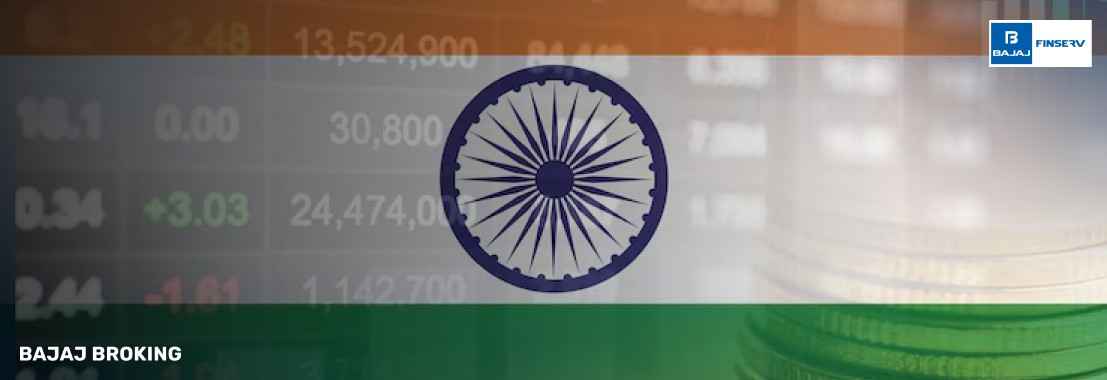If you're looking to explore safe investment options backed by the central government, government securities can be a reliable choice. They come in multiple formats, each serving a unique purpose based on maturity, return, and liquidity. Understanding the different types of government securities helps you choose one that fits your financial goals.
Treasury bills (T-bills)
These are short-term securities with maturities of 91, 182, or 364 days. You buy them at a discount and receive the full face value on maturity.
Dated government securities (G-secs)
These long-term securities have fixed or floating interest rates and tenures ranging from 5 to 40 years. They pay interest semi-annually.
Cash management bills (CMBs)
Issued to meet short-term cash needs of the government, these are similar to T-bills but have variable tenures.
State development loans (SDLs)
Issued by individual state governments, SDLs are long-term securities and carry slightly higher yields compared to G-secs.
Sovereign gold bonds (SGBs)
These bonds are linked to the price of gold and offer fixed interest. You can invest in them if you're looking to combine fixed returns with gold exposure.
Features of government securities
Before investing in government securities, it’s important to know what sets them apart. These instruments are designed with specific characteristics that help both the government raise funds and you earn stable returns with minimal risk exposure.
Issued by RBI on behalf of the government
The Reserve Bank of India manages the issuance, which adds credibility and transparency to the entire process.
Fixed or floating interest
Many dated securities offer fixed interest paid twice a year. Some come with floating rates that adjust periodically.
High liquidity in secondary market
You can sell your securities before maturity in the secondary market, making it easier to manage liquidity.
Risk-free principal repayment
Since these are backed by the government, the chances of default are negligible, especially in central government securities.
Digital holding via demat
Government securities can be held in dematerialised form, reducing paperwork and simplifying transactions for you.
How to invest in government securities
You can invest in government securities through multiple channels. The Reserve Bank of India has made the process accessible to retail investors, allowing you to participate in primary and secondary markets.
One of the simplest ways is through the RBI Retail Direct portal, which lets you open a Retail Direct Gilt (RDG) account. Once your account is verified, you can directly buy T-bills, G-secs, and SDLs in RBI auctions. You can also invest through your demat account using stock exchanges like NSE or BSE, where these securities are listed.
Mutual fund houses and banks offer debt funds that invest primarily in government securities. If you're seeking indirect exposure, this route might suit you better. For SGBs, you can apply during issuance windows via your bank or net banking platform. All transactions are credited to your linked bank or demat account. Whether you're planning for short-term or long-term goals, you can match different types of government securities to your investment horizon and risk comfort.
Benefits of investing in government securities
When you invest in government securities, you’re essentially lending money to the government in exchange for interest and a promise of repayment. These instruments offer unique advantages that make them suitable for risk-averse investors like you.
You enjoy safety of capital
As they are backed by the central or state government, the default risk is very low, making them a dependable investment.
You get predictable returns
Fixed interest rates mean you know exactly what income to expect, helping you plan your finances better.
You gain portfolio stability
Adding government securities to your investment mix can balance out the risks of more volatile instruments like equities.
You benefit from liquidity options
With secondary market trading and RBI's Retail Direct platform, exiting your investment early is possible when needed.
Risks associated with government securities
Although government securities are often viewed as safe investments, they are not entirely risk-free. As an investor, you should be aware of the risks involved so that you can manage your portfolio effectively.
Interest rate risk
When market interest rates rise, the value of your existing bonds may fall. If you sell before maturity, you might book a loss.
Inflation risk
The fixed return may not keep up with inflation, reducing your real purchasing power over time.
Liquidity constraints in SDLs
While G-secs are more liquid, some state development loans might not find enough buyers in the secondary market.
Reinvestment risk
If you receive interest or maturity payments during a low-interest period, reinvesting at favourable rates might be difficult.
Government securities vs. corporate bonds
You may come across both government securities and corporate bonds while exploring fixed-income options. Although both serve similar investment purposes, they differ in several ways. Here’s how they compare:
Factor
| Government securities
| Corporate bonds
|
Issuer
| Central or state governments
| Private or public sector companies
|
Risk level
| Very low
| Higher depending on credit rating
|
Returns
| Generally lower but stable
| Potentially higher with increased risk
|
Liquidity
| High in G-secs, moderate in others
| Depends on the bond's market demand
|
Regulation
| Issued and regulated by RBI
| Issued as per SEBI and Companies Act guidelines
|
Understanding these differences can help you decide whether to stick with government-backed safety or explore higher returns through corporate exposure.
Conclusion
If you’re looking to add low-risk, steady-return investments to your portfolio, government securities offer a range of options—from short-term T-bills to long-term dated securities. With instruments issued and backed by the central or state government, you get high credit safety, fixed income, and flexible maturity options. You can easily access these through RBI’s Retail Direct portal or the secondary market. Knowing the types of government securities, their features, and how to invest can help you make more informed choices based on your goals. Whether you're saving for stability or diversification, these securities offer a dependable path.
Additional Read: What Is Government Bonds




